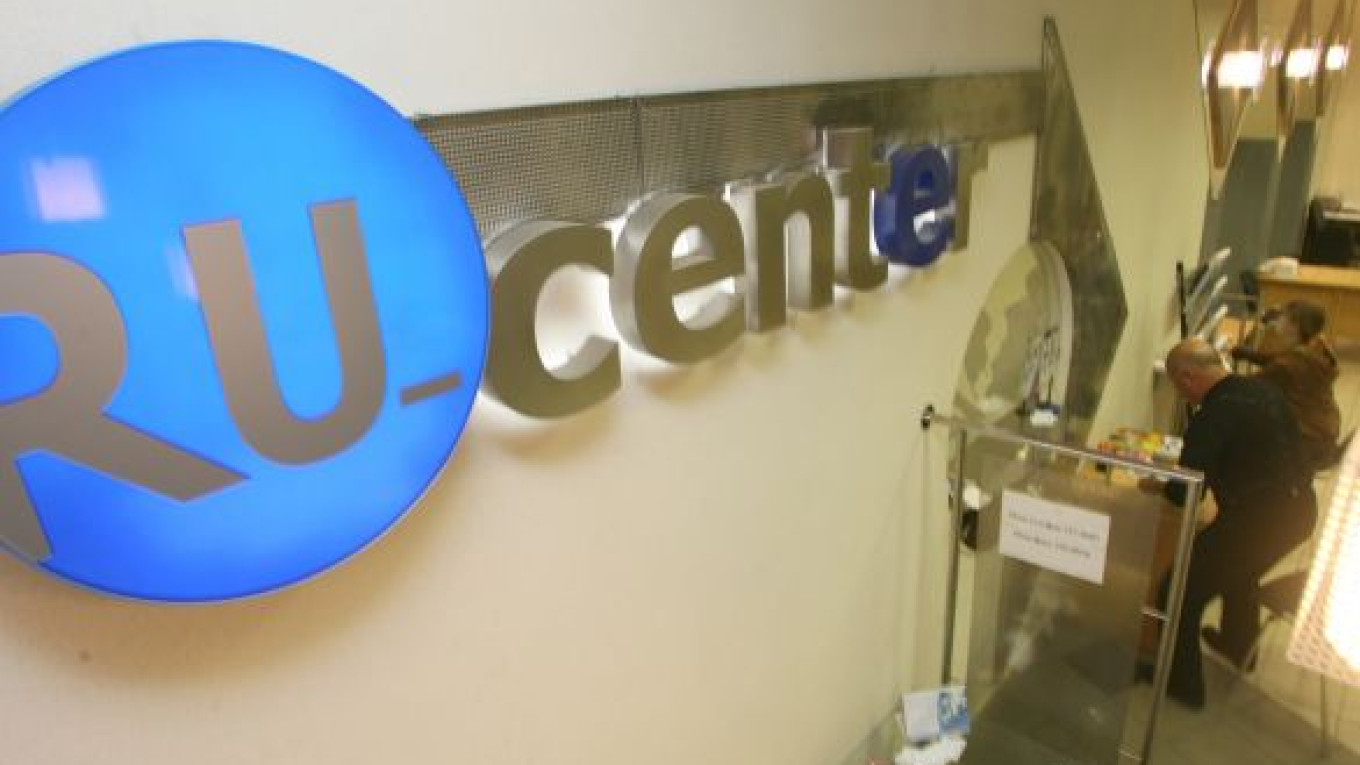Internet domain names using Cyrillic characters may start working this week after the world governing body for Internet domain names officially delegates the .?€?„ domain to Russia.
Representatives of the Internet Corporation for Assigned Names and Numbers, or ICANN, may officially assign the .?€?„ domain suffix to Russia at the Internet Governance Forum, which begins on Thursday in Moscow, said Andrei Vorobyov, a spokesman for Ru-Center, a domain registrar.
"We're really expecting it within days. As soon as the domain is delegated it will start working, because everything is ready on our side," he told The Moscow Times.
Once the .?€?„ suffix, known as a top-level domain, is assigned, the Cyrillic domain names they have registered will become operational.
ICANN in November approved the use of non-Latin characters in Internet domain names, clearing the way for domain names in Cyrillic and other national scripts.
The first domain names using a non-Latin character set became operational last week, after web sites in Egypt, Saudi Arabia and the United Arab Emirates began using Arabic script in their web addresses.
The first round of registrations for Cyrillic domains, which started in November, was marred by confusion. Initially, there was no requirement that the company registering the domain own the trademark for the site it was registering, allowing a host of cybersquatters to register popular names.
But new rules put in place to protect trademark holders ended up excluding a number of legitimate applications. Regulations were implemented requiring that the prospective domain names be consistent with the verbalization of the registrant's trademark.
This meant that popular web sites whose trademarks included Latin letters, including e-mail provider Mail.ru and social network ???????????»?°????????????.ru, were unable to register.
More than a half of the 20,000 applications that were filed during the first round were refused, Vorobyov said, and Latin characters in the names of trademarks were the main reason for most refusals.? ?
Registrars have taken into account the omissions and have relaxed the rules for registration, Vorobyov said.
"These are more humane rules for trademark holders," he said.
The holders of trademarks containing Latin characters and other non-Cyrillic symbols will be able to file applications for priority registration.
The second round of priority registration for Cyrillic subdomains, the names that will precede the .?€?„ suffix, starts Wednesday. In this round, private companies, media outlets and political parties will also be able to file applications, Vorobyov said.
The second round will end on Sept. 30, and starting Oct. 1 everyone will be able to register for subdomains in Cyrillic.
As more countries register for domain names using their native script, concerns have mounted that the Internet will become less of a common information space and will instead devolve into a collection of segregated networks.
But Vorobyov said launching domains in Cyrillic and other scripts would open up new opportunities.
Web sites will be able to register domains in both Latin and Cyrillic, he said, making it easier to remember complicated Russian domain names, which are hard to transliterate into Latin script.
"[Writing domain names in Cyrillic] is a panacea for transliterating trademarks," Vorobyov said.
A Message from The Moscow Times:
Dear readers,
We are facing unprecedented challenges. Russia's Prosecutor General's Office has designated The Moscow Times as an "undesirable" organization, criminalizing our work and putting our staff at risk of prosecution. This follows our earlier unjust labeling as a "foreign agent."
These actions are direct attempts to silence independent journalism in Russia. The authorities claim our work "discredits the decisions of the Russian leadership." We see things differently: we strive to provide accurate, unbiased reporting on Russia.
We, the journalists of The Moscow Times, refuse to be silenced. But to continue our work, we need your help.
Your support, no matter how small, makes a world of difference. If you can, please support us monthly starting from just $2. It's quick to set up, and every contribution makes a significant impact.
By supporting The Moscow Times, you're defending open, independent journalism in the face of repression. Thank you for standing with us.
Remind me later.


